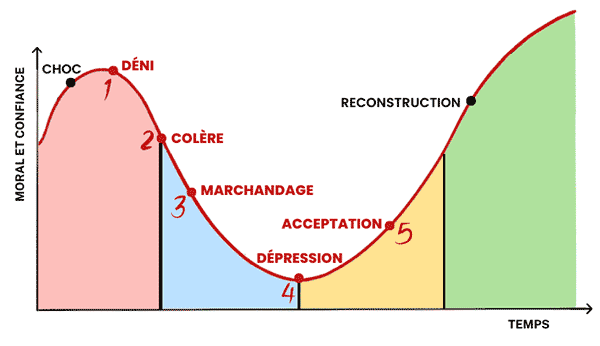Overcoming the psychological barriers that stand in the way of change enables us to achieve our goals.

- Changing behavior is a complex process that can discourage some people.
- The refusal of change is often linked to negative perceptions of oneself that one must know how to overcome.
- The “impostor syndrome” is also a frequent obstacle to change.
If the human brain prefers what it already knows, to progress it must assimilate new habits. Research in psychology shows that changing behavior is a complex and unstable process with relapses and abandonments but which makes us progress.
What are limiting beliefs?
Limiting beliefs are negative opinions or perceptions we have of ourselves that condition our behavior. Often developed in childhood, they tend to diminish our value and our strengths by making us believe that we are incapable or insufficiently competent to change.
To overcome them, it is essential to identify them and challenge them by developing not only a positive vision of oneself but also confidence in one’s abilities.
How to manage your emotions to facilitate change?
Negative emotions can make the process of change difficult. Fear, anxiety, guilt, sadness or even shame fill the mind with negative thoughts that can be discouraging, which act as obstacles and create resistance to change.
To overcome them, it is important not only to recognize them, but also to learn how to manage them with stress management techniques such as meditation or Cognitive and Behavioral Therapy, for example, which will reduce their impact on our decision-making process. decision and cultivate a more positive and constructive attitude.
What about impostor syndrome?
Imposter syndrome is a common barrier to change. Affected people tend to believe that they are not smart enough or that they never achieve anything of importance. This lack of confidence makes them doubt their legitimacy and their skills, making it very difficult to take risks to change.
To overcome this obstacle, it is crucial to work on self-esteem and develop strategies that strengthen confidence in one’s abilities, such as identifying past successes and recognizing one’s strengths that allow one to take the step towards a better version of yourself.
Find out more: “From desire to the pleasure of changing” by Françoise Kourilsky












